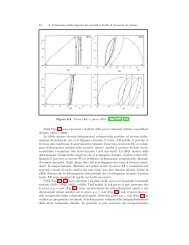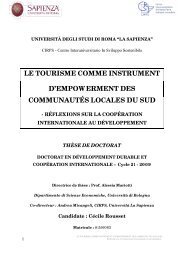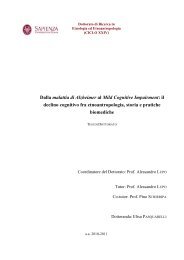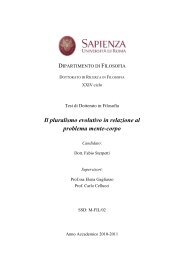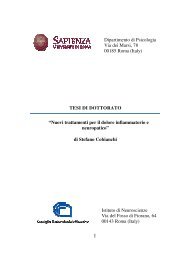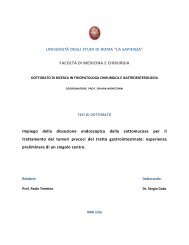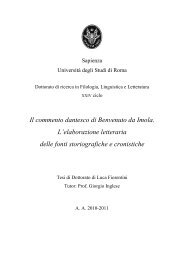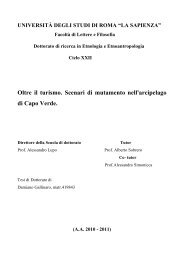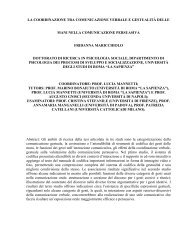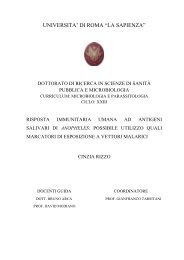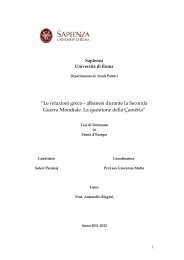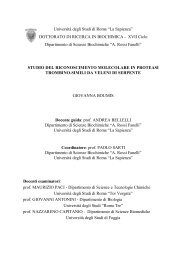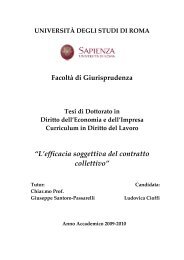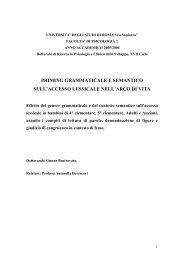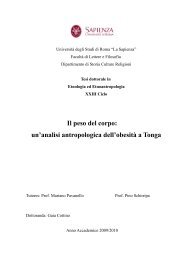Create successful ePaper yourself
Turn your PDF publications into a flip-book with our unique Google optimized e-Paper software.
La cultura della guerra e le sue metamorfosi 49<br />
fought among themselves out there,” but in World War II “we<br />
all were involved.” 73<br />
La storia dei civili tende a colmare la distanza tra storie di guerra – pre-<br />
valentemente maschili – e storie femminili, tradizionalmente escluse dal-<br />
lo status di racconto di guerra <strong>per</strong> la distanza dal luogo dello scontro,<br />
vale a dire dell’evento storico 74 . Per lungo tempo la guerra è stata un e-<br />
vento maschile, e dunque anche in letteratura sono stati gli uomini a<br />
produrre war stories in misura maggiore 75 . Essendo la guerra l’evento<br />
storico <strong>per</strong> eccellenza, la sensazione di essere parte della storia è molto<br />
più forte in coloro che combattono. Secondo le teorie più recenti, <strong>per</strong>ò, le<br />
testimonianze dei civili – categoria preminentemente costituita da donne<br />
e bambini – e la documentazione sul fronte interno forniscono materiale<br />
di estrema importanza <strong>per</strong> la comprensione di un evento che si rivela<br />
traumatico <strong>per</strong> tutti.<br />
73 ALESSANDRO PORTELLI, The Battle of Valle Giulia: Oral History and the Art of<br />
Dialogue, Madison, Wisconsin: The University of Wisconsin Press, 1997, p. 7.<br />
74 “War embodies history in the most obvious schoolbook sense of the word;<br />
having been in the war is the most immediately tangible claim for having been in<br />
history”. Ibid.<br />
75 Scrive Virginia Woolf, mettendo a confronto l’isolamento di George Eliot con<br />
la libertà di movimento di cui godeva Tolstoj: “Had Tolstoi lived at the Priory in<br />
seclusion with a married lady ‘cut off from what is called the world’, however<br />
edifying the moral lesson, he could scarcely, I thought, have written War and Peace”.<br />
VIRGINIA WOOLF, A Room of one’s own, in ‘A Room of One’s Own’ and ‘Three Guineas’,<br />
cit., p. 92. Non è certo corretto affermare che si possa produrre alta letteratura solo<br />
se si è avuta es<strong>per</strong>ienza diretta dell’evento narrato, ma in un certo senso sembra che,<br />
<strong>per</strong> quanto riguarda il racconto di guerra, l’istanza narrativa sia più pressante in chi<br />
ha vissuto direttamente l’evento.



